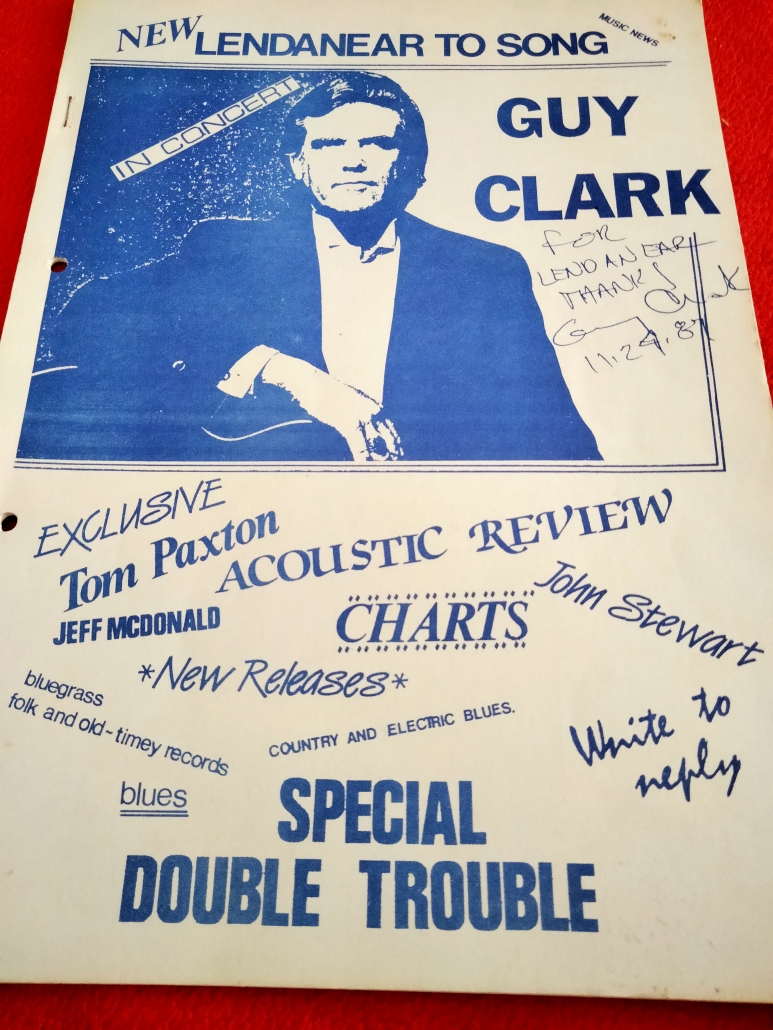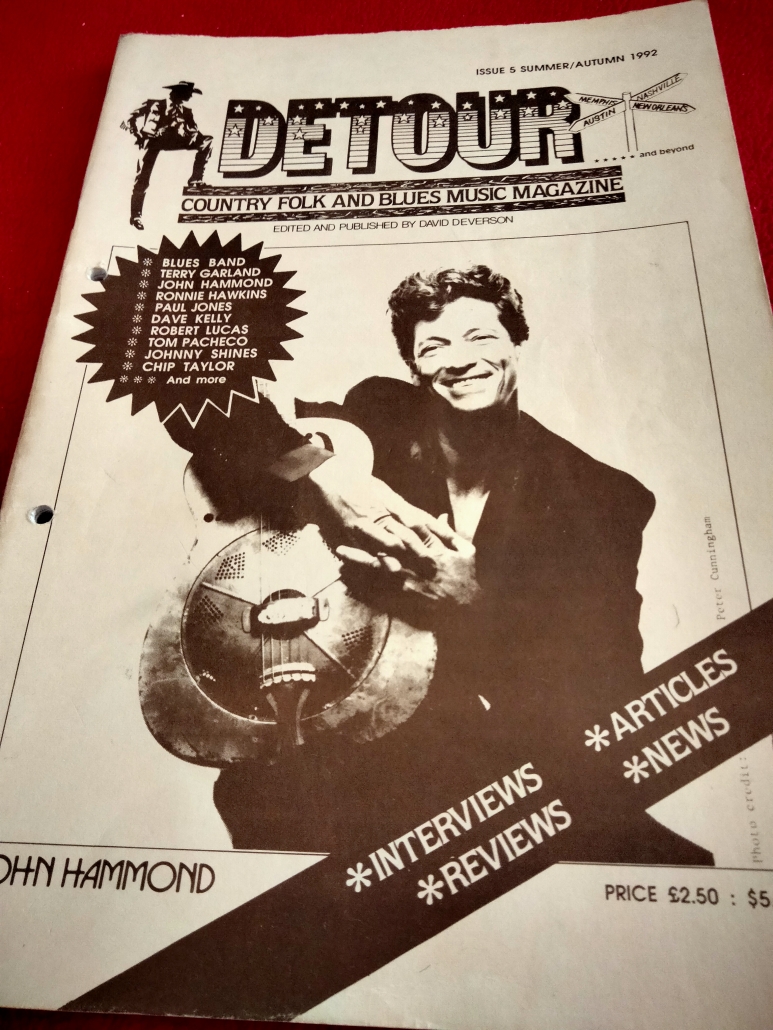KILLING ME SOFTLY WITH OLD SONGS
video killed the radio star, and now music is
KILLING ME SOFTLY WITH OLD SONGS
Norman Warwick follows the thoughts of two experts

Before launching this Sidetracks And Detours blog site two or three years ago, I first wrote and published a series of magazines under the title of Lendanear To Song which was effectively a newsletter about the singer writer duo I had formed with Colin Lever. This was a typed, copied and stapled ´publication´ that I distributed free when allowed to at any gig we played. And those that were left on tables and chairs after a folk-night or country club would be re-collected and re-cycled until the next quarterly edition was published. I eventually created something of a synergy with Stampede promotions, and the magazine became more commercially aesthetic offering new, interviews, previews and reviews of arranged UK tours for great Americana song-writers who remained little known In Britain despite great successes in the States. Tom Pacheco, Katy Moffatt and Jeff McDonald were part of my staple diet.

I subsequently re-launched as a new magazine entitled Detour, published by David Deverson with whom I took a role as co-writer. I suppose that even in those days, back in the eighties and nineties, I saw myself as a shepherd of music, trying to release any sounds blocked by the blues, corralled in the country, or fenced in by folk. Detour was altogether a much more professional publication, (with the funding to make it so) and whilst very much based on Pete O´Brien´s Omaha Rainbow ( a John Stewart fan-zine) but Mr. Deverson had a propensity for the blues and understanding of musical streams, rivers and tributaries that poured into the ocesn of music.
Nowadays, I follow sidetracks & detours to forgotten fields and release anyone over-categorised into the green pasture that is simply called Music. It is always good to find like-minded folk as we wander down sidetracks & detours so I was delighted recently to read the words of a fellow shepherd who put it more eloquently and accurately than I when he introduced his new blog, The Honest Broker

¨I know how difficult it is to find trustworthy guidance in matters of music and culture´, wrote Ted Gioia, The Honest Broker ¨ I’m a writer and a musician, but I’m also a fan at heart, and always looking for a great new album, or a book that will expand my horizons, or a way of figuring out what’s happening in our fast-changing popular culture. It’s always been hard to cut through the noise and get this kind of guidance, but in recent years it’s become almost impossible.
Newspapers have downsized their music and culture coverage to the point of near extinction. There once were full-time jazz writers at every major newspaper in the United States, but I doubt there’s even one left now. And the same is true of other categories of culture. Book reviews, concert reviews, and full-length culture features ought to be put on the endangered species list. And the few articles that get published have often been squeezed and downsized and sometimes dumbed-down too.
But even more, there’s a crisis of confidence. Sometimes I’m a little bit suspicious that reviewers have some other priority than building the reader’s trust and offering honest guidance. Maybe it’s more important for them to please an editor, or they’re writing to impress other critics, or make friends with musicians, or get tenure, or—well, who knows what they’re trying to do? But after getting guided to disappointing albums, books or films too many times, I’ve become far less trusting of the system. You probably have too.
So I made a vow to be the Honest Broker. I’m even adopting it as my official title. And though it seems like the most humble nickname imaginable—what could me more lowly than a mere broker in the grand world of music and culture?—it’s a role I take seriously.
If you stay with me on this journey, I will share many things you won’t find elsewhere. I’ll even tell you the strange story of how I became the Honest Broker. By taking on this mantle, I’m committing to serve as a knowledgeable and trustworthy guide in matters of music and culture. And you can have confidence that I’ve done my homework, uncovering the true and legitimate while penetrating through the fog and phoniness.
Over the years, I’ve been blessed with the best readers. Many of them are musicians themselves, or passionate and knowledgeable devotees to music and culture. I am inviting their active participation in this endeavour. My hope is that this will be more than just a newsletter, but a genuine community of those who care deeply about such matters. And I also hope to bring others on board, individuals who may not be familiar with my books, but will want to join with us in this project of cultural consciousness-raising and mind expansion.
So this is where I am setting up shop, and (as an obliging broker) I think I know what will interest my clientele. I invite you to be one of them.
So I made a vow to be the Honest Broker. I’m even adopting it as my official title. And though it seems like the most humble nickname imaginable—what could me more lowly than a mere broker in the grand world of music and culture?—it’s a role I take seriously.
´I had a hunch that old songs were taking over music streaming platforms´, said The Honest Broker on his opening blog pages, recently, ´but even I was shocked when I saw the most recent numbers. According to MRC Data, old songs now represent 70% of the US music market´.
Being honest, that was a surprising figure to us here at Sidetracks And Detours, as well, but as we do happen to be of a generation that finds familiarity, comfort and nostalgia in old music, we feel the balance is one we can perhaps live with. Nevertheless we have a good percentage of much younger ,people in our readership demographic and try to keep up with them, and even sometimes update them, on new names and developments. And we are not such dinosaurs that we would simply eat new shoots of music,
The Honest Broker, however, reminded us of the dangers in the figures he was discussing.
´Those who make a living from new music—especially that endangered species known as the working musician—have to look on these figures with fear and trembling.
But the news gets worse.
The new music market is actually shrinking. All the growth in the market is coming from old songs.
Just consider these facts: the 200 most popular tracks now account for less than 5% of total streams. It was twice that rate just three years ago. And the mix of songs actually purchased by consumers is even more tilted to older music—the current list of most downloaded tracks on iTunes is filled with the names of bands from the last century, such as Creedence Clearwater Revival and The Police.

I saw it myself last week at a retail store, where the youngster at the cash register was singing along with Sting on Message In A Bottle (a hit from 1979) as it blasted on the radio. A few days earlier, I had a similar experience at a local diner, where the entire staff was under thirty but every song more than forty years old. I asked my server: “Why are you playing this old music?” She looked at me in surprise before answering: “Oh, I like these songs.”
The reasons are complex—more than just the appeal of old tunes—but the end result is unmistakable: Never before in history have new tracks attained hit status while generating so little cultural impact. In fact, the audience seems to be embracing en masse the hits of decades past. Success was always short-lived in the music business, but now it hardly makes a ripple on the attention spans of the mass market.
A few hearty souls take solace in the fact that only songs released in the last 18 months get classified as new in the MRC database. But that’s cold comfort indeed. I doubt these old playlists consist of songs from the year before last—and even if they do, this still represents a stinging repudiation of the pop culture industry, which is almost entirely focused on what’s happening right now.
Every week I hear from hundreds of publicists, record labels, band managers, and other professionals who want to hype the newest new thing—for the simple reason that their livelihoods depend on it. The entire business model of the music industry is built on promoting new songs. As a music writer, I’m expected to do the same—as are radio stations, retailers, DJs, nightclub owners, editors, playlist curators, and everyone else with skin in the game. Yet all the evidence indicates that few are paying attention.
As I read the last couple of paragraphs there I was screaming inside that, yes, we in the music press have to address the duties that The Honest Broker detailed, but what about today´s NEW musicians? Don´t they have a duty to create new sounds that build on the old and can resonate with a younger generation? Am I the only septuagenarian who finds so much of ´new ´music to de derivative in style but not in quality? The Honest Broker made me reconsider my attitude.
´Just consider the recent reaction when the Grammy Awards were postponed´, he urged me. ´Perhaps I should say the lack of reaction—because the response was little more than a yawn. I follow thousands of music professionals on social media, and I didn’t encounter a single expression of annoyance or regret that the biggest annual event in new music had been put on hold.
That’s ominous´.
The Honest Broker is a reader-supported guide to music, books, and culture. Both free and paid subscriptions are available. If you want to support my work, the best way is by taking out a paid subscription.
Other well respected writers from a number of magazines, including Paste on line, picked up on the circumstances The Honest Broker described on-line, and wrote his own article in agreement and response.
´For those who haven’t noticed´, he said ´there’s been a rush on legendary artists’ musical catalogs recently´.

In the past few months, entire (or almost entire) catalogs from musicians like Bob Dylan (right) , Whitney Houston, The Beach Boys, Bruce Springsteen, David Bowie, ZZ Top, and about a dozen more have sold from tens of millions to even hundreds of millions of dollars.
Why? Ted Gioia, writing as The Honest Broker has a few thoughts.
In a recent article, Gioia presents the question: is old music killing new music?
That thought may seem silly at first glance. Artists like Taylor Swift, BTS, and Adele have huge followings, don’t rely on cover songs, and have practically brought the vinyl and CD formats back to life.
But with a deeper look, Gioia may be onto something.
According to the MRC Data report, “For the first time since MRC Data began tracking streaming music in 2008, the audio streaming of Current music (music released less than 18 months ago) actually declined.”
The report continues, “This led to a significant increase in Catalogue’s share of the audio-on-demand streaming universe, with 70% in 2021 vs 65% in 2020, as consumers reconnected with old favorites or discovered them for the first time through platforms like TikTok.”
In addition, older musical formats grew. In an age when streaming seems to be the biggest deal in music, vinyl and CD formats rose for the first time in years.
The MRC Data report adds, “Vintage music formats took on new relevance in 2021 too, as vinyl album sales outpaced CDs for the first time in MRC Data’s history (since 1991). Vinyl album volume increased a whopping 50.4% YOY and finished the year with 41.7 million versus CD album volume at 40.6 million. This included the first week in MRC Data history that saw vinyl sales in excess of 2 million copies, with 2.11 million albums sold the week ending Dec. 23 as consumers stocked up for the holiday season.”
According to Insider Radio, “In 2018, the year’s 200 most streamed songs were responsible for nearly 1 in 10 of all streams that took place, a new analysis from MRC Data shows. But by 2021, that number declined dramatically to less than 1 in 20.”
So, what does this mean?

Anecdotally, how many songs are impacting culture in ways that, say, 50 years ago The Beatles, The Rolling Stones, The Doors (left), Dylan and other acts did?
Sure, Adele is selling more albums than anyone can reasonably count. But do you know any of the names of her songs? Adele’s 2015 song Hello remains a constant, but do most fans of music know any other of her titles since then? Maybe some do—maybe.
Gioia also notes that viewership for the Grammys has dropped more than 30 million people in a ten-year span. Yes, more people watch clips or follow big awards shows on social media, so those numbers may be skewed. But 40 million viewers in 2012 and 8.8 million in 2021 is a big, big drop.
If we look back to the list of artists whose catalogs are being bought in the tens or hundreds of millions, many of them are in their 60s, 70s, or 80s. Perhaps this signals a last-ditch attempt at a payday before these artists pass away into old age. But maybe the record companies know something else.

Namely, how valuable these songs are in an age when work is less memorable. Sure, artists like Billie Eilish (right) and Olivia Rodrigo are huge. But how many songs of theirs can you name off the top of your head? Two?
Gioia wonders what people do when they walk into their local record store? Do they buy the newest albums, or do they look for vintage or re-pressings of their parents’ favorites?
´Record stores´, The Honest Broker says, ´are caught up in the same time warp. In an earlier day, they aggressively marketed new music, but now they make more money from vinyl reissues and used LPs.´
Gioia presents reasons for this shift—record companies fear of discovering new talent (for the work it takes) or the worry that if they listen to a demo they might be sued if something resembling that demo finds its way into another established artist’s song— but the answer may not be clear.
Radio, too. If one puts on a jazz station or a rock station, how many of the songs that come on will be “classic” versus new? DJs program shows based on listeners’ tastes. And, it would seem, people often want the old hits.
In an era when people are very sensitive and perhaps ready to pounce on any new artist for being “offensive,” perhaps the only way to look is back, not forward. We’ll see if this trend continues, but as Gioia says, it’s not that there is less talent or fewer people playing music or writing songs, it’s more that they aren’t being developed´.
´The problem´, Gioia concludes, ´isn’t a lack of good new music. It’s an institutional failure to discover and nurture it´.

As I placed that last full stop, another Paste news item pinged into my e-mails, about Neil Young withdrawing his music from Spotify. I realised as I read it that was another bit of infighting on the battlegrounds of music distribution, and we will let you know very soon how the major and influential music media responds to this.

Pop Will Eat Itself, named after a phrase coined by NME journalist David Quantick, was a West Midlands ‘grebos’ PWEI initially recorded thrash-punk material, but soon fell in love with hip hop. is the name an English alternative rock band formed in 1986 in Stourbridge in the West Midlands of England with members from Birmingham, Coventry and the Black Country. Initially known as a grebo act, they changed style to incorporate sample-driven indie and industrial rock. How pre-scient their band name now seems, and how likely is it that The Honest Broker might yet call them as an expert witness on whether or not old music is killing the new.
Meanwhile music lovers and consumers might wonder who is best representing their interests in these turbulent times. We will keep our eye on developments and try to keep you as updated as possible and try to provide a platform for those music businessmen, musicians, retailers and suppliers and, of course, those fans and consumers who would like to have their say.
If that is the case see our details below as to how to submit your own views.

The primary sources for this article include a piece published on line by The Honerst Broker on his eponymous web site and responses, to that from various sites, including my own.
In our occasional re-postings Sidetracks And Detours are confident that we are not only sharing with our readers excellent articles written by experts but are also pointing to informed and informative sites readers will re-visit time and again. Of course, we feel sure our readers will also return to our daily not-for-profit blog knowing that we seek to provide core original material whilst sometimes spotlighting the best pieces from elsewhere, as we engage with genres and practitioners along all the sidetracks & detours we take.
This article was collated by Norman Warwick, a weekly columnist with Lanzarote Information and owner and editor of this daily blog at Sidetracks And Detours.
Norman has also been a long serving broadcaster, co-presenting the weekly all across the arts programme on Crescent Community Radio for many years with Steve, and his own show on Sherwood Community Radio. He has regularly guested on BBC Radio Manchester, BBC Radio Lancashire, BBC Radio Merseyside and BBC Radio 4.
As a published author and poet he was a founder member of Lendanear Music, with Colin Lever and Just Poets with Pam McKee, Touchstones Creative Writing Group (where he was creative writing facilitator for a number of years) with Val Chadwick and all across the arts with Robin Parker.
From Monday to Friday, you will find a daily post here at Sidetracks And Detours and, should you be looking for good reading, over the weekend you can visit our massive but easy to navigate archives of over 500 articles.

The purpose of this daily not-for-profit blog is to deliver news, previews, interviews and reviews from all across the arts to die-hard fans and non- traditional audiences around the world. We are therefore always delighted to receive your own articles here at Sidetracks And Detours. So if you have a favourite artist, event, or venue that you would like to tell us more about just drop a Word document attachment to me at normanwarwick55@gmail.com with a couple of appropriate photographs in a zip folder if you wish. Beiung a not-for-profit organisation we unfortunately cannot pay you but we will always fully attribute any pieces we publish. You therefore might also. like to include a brief autobiography and photograph of yourself in your submission. We look forward to hearing from you.
Sidetracks And Detours is seeking to join the synergy of organisations that support the arts of whatever genre. We are therefore grateful to all those share information to reach as wide and diverse an audience as possible.
correspondents Michael Higgins
Steve Bewick
Gary Heywood Everett
Steve Cooke
Susana Fondon
Graham Marshall
Peter Pearson
Hot Biscuits Jazz Radio www.fc-radio.co.uk
AllMusic https://www.allmusic.com
feedspot https://www.feedspot.com/?_src=folder
Jazz In Reading https://www.jazzinreading.com
Jazziz https://www.jazziz.com
Ribble Valley Jazz & Blues https://rvjazzandblues.co.uk
Rob Adams Music That´s Going Places
Lanzarote Information https://lanzaroteinformation.co.uk
all across the arts www.allacrossthearts.co.uk
Rochdale Music Society rochdalemusicsociety.org
Lendanear www.lendanearmusic
Agenda Cultura Lanzarote
Larry Yaskiel – writer
The Lanzarote Art Gallery https://lanzaroteartgallery.com
Goodreads https://www.goodreads.
groundup music HOME | GroundUP Music
Maverick https://maverick-country.com
Joni Mitchell newsletter
passenger newsletter
paste mail ins
sheku kanneh mason newsletter
songfacts en.wikipedia.org/wiki/SongFacts




Leave a Reply
Want to join the discussion?Feel free to contribute!